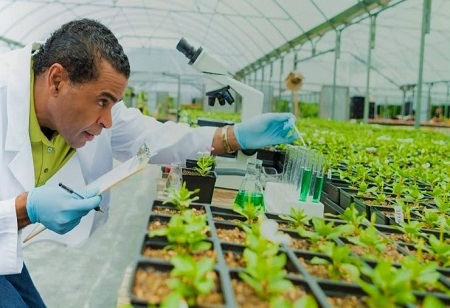While biotechnology plays a significant role in upgrading a few plant proteins which are currently considered either incomplete or of low biological value, which do not have one or more of the essential amino acids,
agricultural biotechnology comprises the use of a wide range of modern techniques for developing innovative products with enhanced quality traits. Traditional breeding techniques have been adopted widely for carrying out alterations in plant as well as animal genomes. Furthermore, advancements in the genetic engineering field have facilitated controlling of genetic changes induced into the organism.
Advanced biotechnology tools have facilitated the professionals in incorporating new genes from one species to the other unrelated species. This iseither targeted towards the optimization of agricultural production or the manufacturing valuable pharmaceutical compounds.
Globally, an increase in the adoption of
Genetically Modified crops is anticipated to fuel the market throughout the forecast period and this is owing to genetic modification that permits the production of feed & food crops with enhanced characteristics which comprise high yield, high nutritional value,enhanced food-processing qualities, as well as resistance against diseases & insects. In several nations, Genetically Modified crops have been adopted rapidly, & the market for insect-resistant, herbicide-tolerant Genetically Modified seeds is one among the growing industries of the agricultural sector. Some of the challenges in the agricultural biotechnology sector include:
Developing appropriate & affordable technologies
While there is a need to build or discover new technologies which complement the current farming systems as well as native crops, for rendering them at affordable prices, &which are safe for humans as well as the environment, locally-developed applications should be designed for meeting local conditions as well as user needs& it cannot be assumed that the current applications can be transferred simply as several if not most of the current biotechnology applications are inappropriate for the conditions in developing economies. For example, herbicide-tolerant crops have been slow to penetrate into the South Asian market since because the tolerant varieties are not adapted to crops as well as conditions which are most relevant to developing economies, & more importantly, no-nil technologies in small farm production systems that have been difficult to build.
